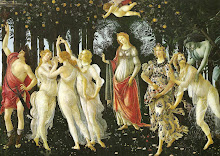 This past week we had two other presentations. First of all, I’d like to congratulate the group members for trying to give best presentation they can in one of the most hectic weeks of the semester, so give yourselves a clap :)
This past week we had two other presentations. First of all, I’d like to congratulate the group members for trying to give best presentation they can in one of the most hectic weeks of the semester, so give yourselves a clap :)Secondly, here comes my review of the texts...
I think Emily is one of the obsessive female characters I’ve read about in my entire life. She seems to be infatuated by death, and call me ‘harsh’, but she is really selfish. Letting go of others is probably the most difficult thing one has to learn; however, Emily stubbornly refuses. She holds on to both her father and so-called lover. I don’t think she’s being fair to these men. Let them rest in peace, Emily!
Let’s move on to Hanife…
There’s so much to say about her story. Hanife’s story is real just as many other young woman’s who were victimized by honor killings. Since I am a young woman as well, hearing about things like this makes my heart ache. Knowing that you could be one of those women… you just weren’t because you were lucky enough to be born into your family...It is just too much to bear. I hope someday all women can be free because of the simplest reason; everybody has the right to be so!
Another point I cannot resist to make is this: As I was discussing Hanife with a friend of mine, I realized something else. The word ‘honor’ actually translates to ‘onur’ in Turkish; however, when we translate ‘namus’ (after all, honor killings are all in the name of ‘namus’ ),we translate it as ‘honor’ to English. Does anyone else see what I see? Isn’t something really wrong here? Don’t you realize that this word is ‘marked’? Think of Deborah Tannen’s article Marked Women. Unfortunately, this ‘mark’ is specific to the Turkish language as far as I know. It sickens me to realize this, but I think this is one of those issues where the society needs to evaluate itself: How can you speak of honor when you kill too many innocent young women to count?
Explain that.

"Knowing that you could be one of those women… you just weren’t because you were lucky enough to be born into your family...It is just too much to bear."
ReplyDeleteI feel exactly the same. We are not special, we are just lucky. It's almost too horrifying to contemplate.
Perhaps you need to tell me more about this point you're making about the translation of 'namus' because it intrigues me...how would you translate 'namus' to English? How would you explain the difference between 'onur' and 'namus'?
These questions really made me think for a while Sonja.. They are quite challenging to answer, but I'll give it a shot at explaining.
ReplyDeleteI would translate 'onur' as honor or integrity.
On the other hand, 'namus' is given the translation of 'honor', but it means the 'chastity' of a woman in the Turkish society. Ask random people in the street what 'namus' is , %95 percent- I predict- will tell you something along the lines of chastity.
I also need to underline that 'chastity' does not refer to both sexes-it is just attributed to females.
In my opinion, 'namus' as a word simply should not exist because it is discriminatory.
Ooooh...so I totally agree with you then...this word should not exist! How chilling that it is 'namus' which is used in the phrase 'namus cinayeti' then...
ReplyDelete:((
yes, sadly it has that meaning behind it..
ReplyDelete